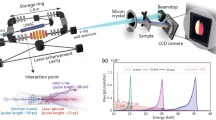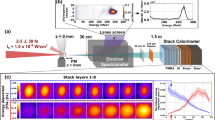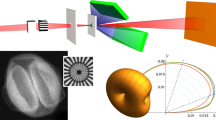Abstract
AT the suggestion of Prof. Richardson, we have for some time been engaged in an investigation of the connection between X-ray absorption coefficients and critical frequencies. In this work we have met with considerable experimental difficulties, which so far have not been completely overcome. It appears, however, that one of the questions we had set ourselves can be answered, partially at any rate, from some data recently published by Richtmeyer (Phys. Rev., July, 1921, p. 13), who has given the absorption curves of molybdenum and silver for homogeneous X-rays on both sides of their respective critical (K) absorption frequencies, and for lead on the longer wave-length side. Data on lead have been previously given by Hull and Rice (Phys. Rev., vol. 8, p. 326, 1916), who have also determined one point on the shorter wave-length side. The values of Richtmeyer for lead are proportionately higher than those of Hull and Rice, apparently indicating that the latter have inaccurately determined the thickness of their thin absorbing screen.
This is a preview of subscription content, access via your institution
Access options
Subscribe to this journal
Receive 51 print issues and online access
$199.00 per year
only $3.90 per issue
Buy this article
- Purchase on Springer Link
- Instant access to full article PDF
Prices may be subject to local taxes which are calculated during checkout
Similar content being viewed by others
Author information
Authors and Affiliations
Rights and permissions
About this article
Cite this article
WILLIAMS, W., WORSNOP, B. Absorption of X-Rays. Nature 108, 306–307 (1921). https://doi.org/10.1038/108306c0
Issue Date:
DOI: https://doi.org/10.1038/108306c0
Comments
By submitting a comment you agree to abide by our Terms and Community Guidelines. If you find something abusive or that does not comply with our terms or guidelines please flag it as inappropriate.



